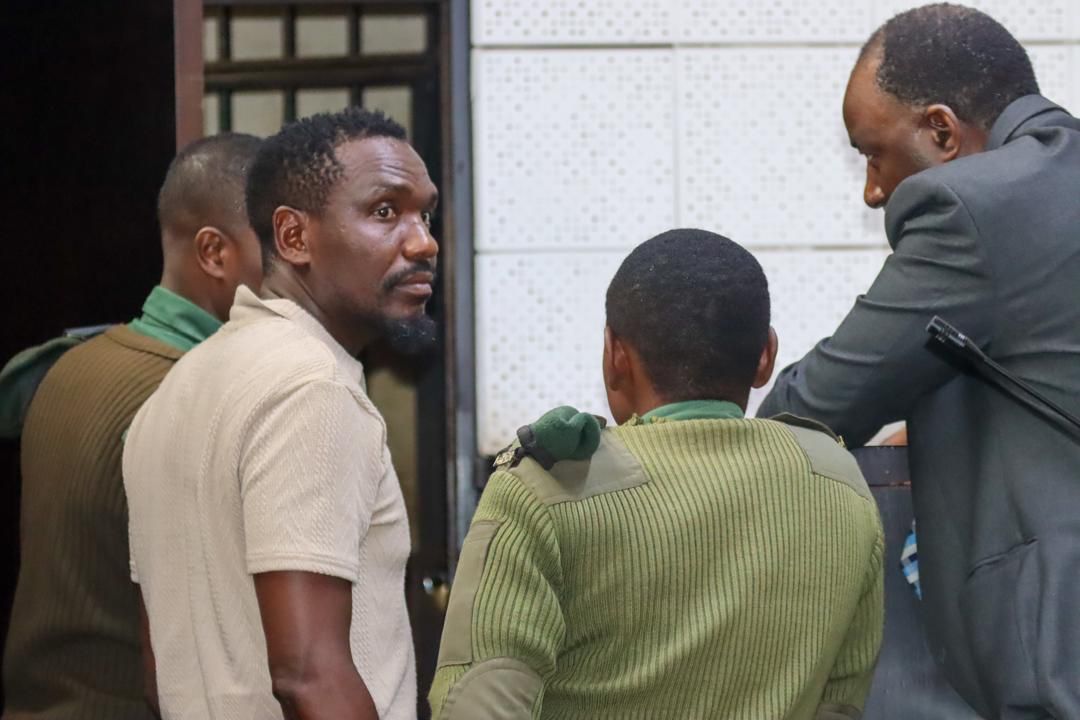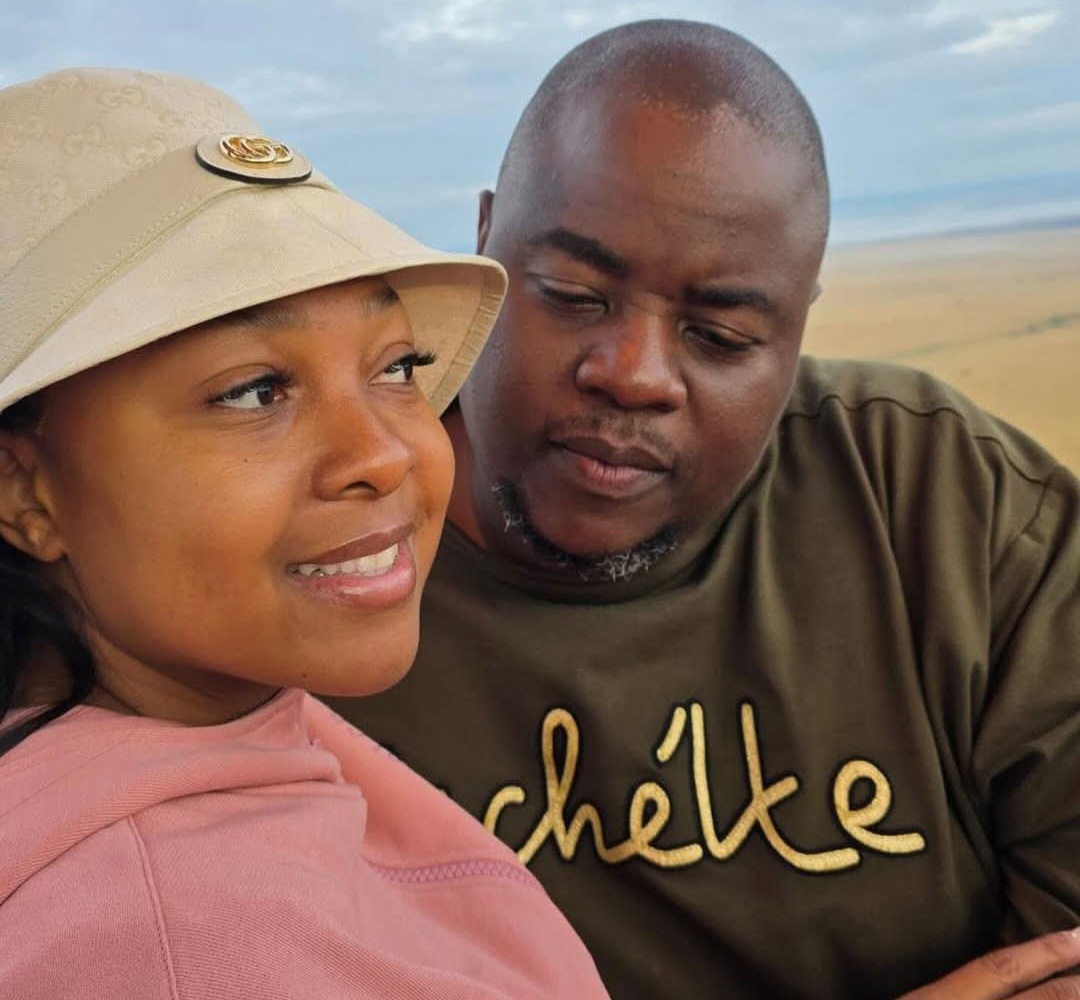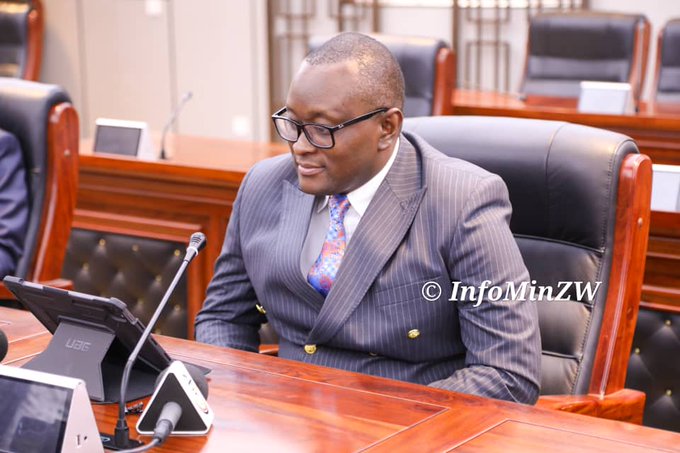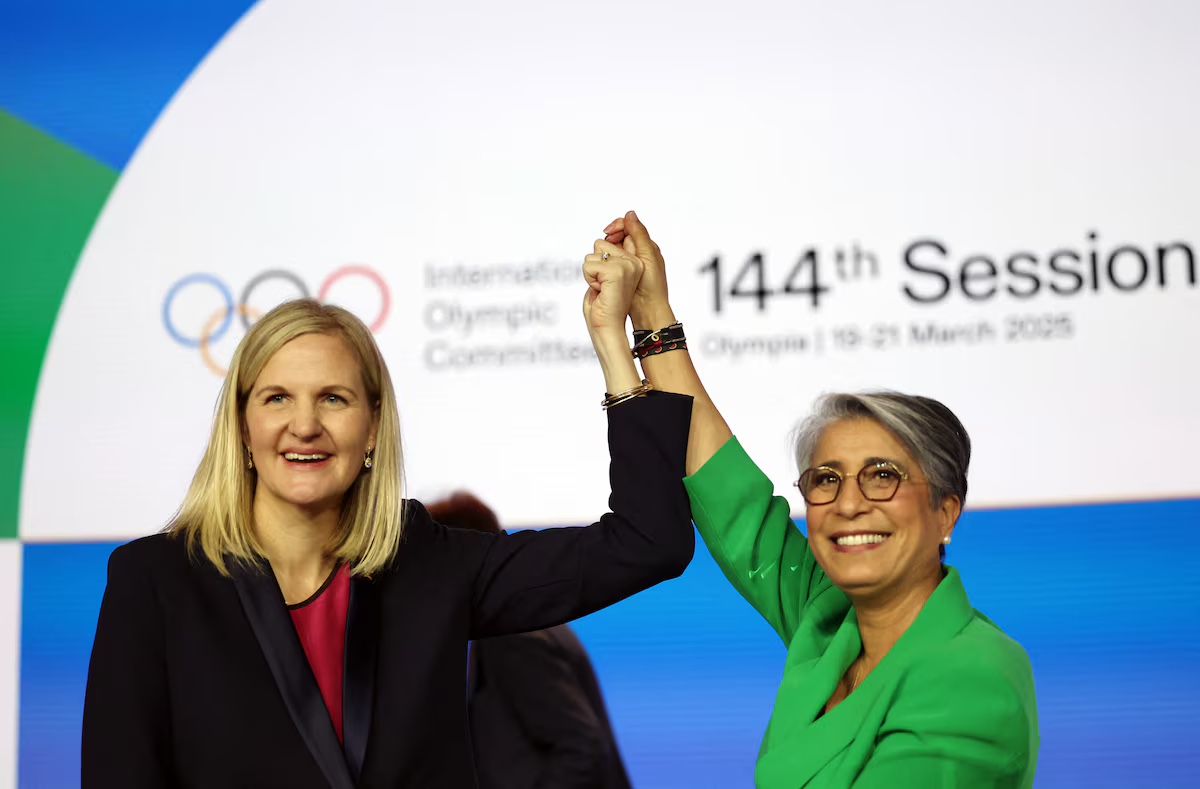President Emmerson Mnangagwa’s land tsar KUDAKWASHE TAGWIREI has given an interview to the ZBC discussing how resettled farmers will obtain title deeds, and the scheme’s overall impact on the economy. Here is a transcript of that interview with MONICA CHANDA, which has been edited for clarity:
TAGWIREI: The land is allocated through the Land Commission and, indeed, the ministry of lands and agriculture. We don’t do that. We are just mainly focusing on making sure that this land is given appropriate tenure, and we have decided that we are going to do a deed of transfer.
And so because of that, we then incorporate the justice ministry, the deeds registry, we incorporate local government because we’re going to be looking at the urban development, and also incorporate the ministry of finance. So that’s what an implementation does. It looks at all these aspects and makes sure that it is done properly, but remember, we don’t allocate land.
CHANDA: Let’s touch on the process itself. The issue of granting of land, fairness of ownership. We’re talking about the implementation and avoiding favouritism. Your committee is supposed to ensure that, so how are you going to make sure there’s no misuse whatsoever?
TAGWIREI: Again, I’m going to say to you, Monica, that we don’t look at that. That is looked at by the Land Commission.
CHANDA: But how do you come in?
TAGWIREI: We come in to ensure that the piece of land that has been allocated to a specific family entity is given a proper security of tenure document that is acceptable to the banks and that is also acceptable whenever they actually want to transfer this land to someone else whom they may choose. That’s where we come in. We don’t allocate. We make sure that the land survey, we will look at the survey, make sure that there are pegs to ensure that this person has really gotten the piece of land that the minister of agriculture has intended to give it to him and then we make sure that they are allocated. That’s where we end. That’s where we begin.
CHANDA: Are you more like administrators?
TAGWIREI: No, we are implementers.
CHANDA: Implementers?
TAGWIREI: Yes.
CHANDA: Now with being an implementer, there have been reports, the creation of parallel structures in the administration of these title deeds, the land tenure itself, and let’s talk to even being in line with the constitution itself, governance statutes of the country. Are there safeguards in place? Because we are hearing certain sectors saying that, no, this land tenure system, something is wrong. There are certain parallel structures.
We want to hear from you, Mr Tagwirei.
TAGWIREI: All the laws that need to be there, remember what I said, we looked at what are the laws that are there that will allow for one to have an adequate land tenure on their farm. You know, before I came here, I was looking at this word, “alienate.”
So, when you were applying to get this piece of land, you were stating that you wanted to be a commercial farmer. The risks associated with being a commercial farmer are that you must make sure to work the land so that you can pay your dues. This is the process, and it’s one of the issues we’re struggling with.
Government has been continually funding these programmes, but some farmers were unwilling to pay for various reasons, and there was no management process in place to address this. The bank is stepping in to manage the process of ownership structure.
One of the things the president did, and I always mention this, is that this is one of the biggest empowerment programmes in the world. I say this because, as I mentioned earlier, the land’s value is around US$20 billion. However, what the president has done is to say that he wants this farm to allow the farmer to borrow against the very farm.
But when you are alienating for value, according to the constitution, the farmer must be able to pay for the land they are receiving.
Therefore, the president has said that we must give the farmer a lot of discounts so they can get a first mortgage on the farm.
CHANDA: Understanding the implementation process of the land tenure system is important. We still have in studio our guest, the Land Tenure Implementation Committee Chairperson, Mr. Kudakwashe Tagwirei. I want us to go back a bit. It is expected that once the farmers have title deeds, this will unlock certain capital for them, among many other benefits. However, there has been concern that many might not be able to repay their loans. This fear exists, and banks might end up owning large tracts of land, potentially taking advantage of the farmers. As the committee, let’s address this concern.
TAGWIREI: Some people have said that Kudakwashe Tagwirei wants to take all this land for himself, but that’s not possible because I don’t have US$20 billion to buy this land. The process being implemented is the reason why the committee is involved. We have recommended, as provided in the constitution, that one family can only have one farm. This is stipulated in the constitution.
To ensure this, we have used the national ID numbers to monitor the process. According to section 289 of the constitution, any citizen of this country is allowed to have access to land. A citizen is a person, not an institution. It’s a person. And this person is identified by an ID number.
CHANDA: But is that enough to hold forth? Just the ID number? Because the ID number represents a person.
TAGWIREI: You cannot have multiple ID numbers. You can’t. But there have been allegations of certain ghosts. Oh, well, I cannot go to that, because that is something that the ministry of home affairs should be looking at. I am not part of that.
CHANDA: Is home affairs not working with the committee?
TAGWIREI: No, well, they are in some way, but I’m saying to you that, again, if we have ghost accounts, that is a bigger problem that must be addressed elsewhere. That’s not what we’re talking about here. What we’re talking about here is that when an ID is given to an individual, to a citizen of this country, the ID is a unique identifier to an individual. And so, when we are issuing a title to this farmer, the main focus point is the ID number.
So we will issue it on the basis of that number. So now when the bank takes this land, when the bank repossesses the land, because the bank cannot take land, and when they are repossessing it on behalf of the government, that’s what happens. The bank cannot then own the land because they have no ID number. Only an individual can. I hope you follow.
So this land will be going back to the government, not the banks that will then allegedly be owning these large tracts of land. Because they are just administrators.
CHANDA: Okay, let’s come back again. Since you did also speak to one family, one farm. So how do you then solve a situation whereby we have people who are allocated farms or land? These were children, now adults, and have their own families. How does this then work? How do you separate the two?
TAGWIREI: Okay, first of all, we are not the ones who allocate land. So I want to really emphasise this, that we don’t, we wouldn’t want to solve problems which are not ours. This is an issue for land commissioners, it should be really addressed by them.
But having said that, a farm was only allocated to someone who was above 21-years-old. So there was never a minor who was allocated land. It’s not possible.
Because you have to make sure, we have to look at the laws that are in the constitution that define who a citizen is. And those are the ones who were allocated this land. So I’m not sure how a minor would have been allocated land. In my view, that was practically impossible. But again, if there were such instances, then the land commission would have dealt with that.
CHANDA: We have war veterans, we have women, the youth and people with disabilities. How are you handling the issue of inclusivity, the issue of ensuring that there is that allocation throughout the different demographics as well?
TAGWIREI: Again, I’ll say, we don’t allocate land. And we don’t take land that has been allocated to an individual. We don’t, we have no capacity to do that. The land is allocated by the minister of agriculture, and is supervised by the land commission.
But having said that, if you read the statement by the cabinet, when they were talking about putting up this security of tenure document, they were going to be focusing on ensuring that the war veterans are catered for. Primarily the war veterans, the women, and youths, and government as a whole. And in our provisions, what we have done is that there are certain discounts for certain groups of people, primarily the war veterans and government.
But in terms of allocation of the land, we don’t allocate it, it’s allocated by some other ministries, yes.
CHANDA: You did say you are the implementers, but even as implementers, aren’t you also part of the process itself in terms of, even when we’re speaking to the allocation? Because here, we want to understand.
TAGWIREI: Now, let me say, one of the problems that was also happening is… there were many committees. There was the district land commission, then there was provincial land commission. All these commissions would recommend certain aspects to the minister. And as a result, some people ended up losing their pieces of land, for one reason or the other. Now, all these things, obviously, were being administered.
And then, obviously, they’ll then go and talk to the land commission to resolve these issues, right? So the process is, there were too many individuals who were involved in this entire process. But what we are only going to be looking at ourselves, we will not look at who was allocated land. As I said in my first statement, 380,000 farmers were allocated land, 380,000. We have no right to go and take land that has been allocated to someone and then give it to some other person. That responsibility lies with the ministry of agriculture, together with the land commission. And they will then look at ensuring that that process has been as effective as you want it to be.
CHANDA: So I’m always wondering, and when people are talking about this, they say, okay, there are all these groups of people that have not gotten land?
TAGWIREI: No. The commission has been in place, I think, since around 2017, somewhere there. So what we can only do is to recommend to them, because it is not our work. So we will recommend. Obviously, a lot of groups, like the war veterans who are part of us, they are going to come and recommend… what they actually do is that they tell us, gentlemen, they are taking farms away from war veterans. The land commission is there. The secretary for agriculture is there. And that, we will just take it from them and pass it to these people so that they make sure that that is looked at so that when the security of tenure document is now coming into effect, it goes to the rightful owner. Again, we do not allocate land. We make sure that they have security of tenure.
CHANDA: Mr Tagwirei, you’re simply implementers, like you said. But we are looking to this process itself, the exercise itself, how is it going to contribute to agricultural productivity? And before you even respond, we are an agro-based economy. Zimbabwe’s economy is actually projected to grow by about 6 percent this year. How will this land tenure process, how do you intend to ensure that it contributes to this?
TAGWIREI: Very good question. So as I said earlier on, the value of this land is around US$20 billion. The average price of land in this country, agricultural land, is around $2,000 per hectare. Now, what the president has done, and as I was going to say earlier on, the president has embarked on one of the biggest empowerment programmes in the world.
Because what he’s saying, recognising the fact that the farmer, this war veteran who came from war, does not have any resource to farm this land, so what are they going to do? So the president says, okay, I want you to make sure that the farmer will be able to use that land as security when they’re going to access finance from banks.
That’s what he said. So we then came up with some recommendations, and those recommendations will allow, will give this farmer discounts, and those discounts will make sure that the government is going to issue a first mortgage for the purchase of that piece of land for the alienation, which is going to be some value. But it’s going to allow this farmer to also be issued with a second mortgage for having access to finance to work the land. You understand, right? Because you’re allowed to have a second mortgage on any asset.
CHANDA: Does this also come with recommendations in terms of ensuring the farmer also gets lower interest rates?
TAGWIREI: So I was going to get to that. Now, remember, the farmer has paid some fee for this land, which is some amount, and most probably it’s going to come to around maybe $10 to $12, maybe $13 billion, somewhere around there. But when we include the urban land, most of that money is actually going to come from urban land. Maybe it’s about $6 billion from the farmland. That money is being put in some fund, that money that you have paid, which has allowed you to be alienated that land according to the constitution, and those constitutional provisions have been met, is when we put in some fund, and that fund is going to allow the very same farm to access it so that they can farm.
CHANDA: Who will be managing that fund?
TAGWIREI: It’s the banks.
CHANDA: Who will be monitoring the banks in terms of the management?
TAGWIREI: The minister of finance. That’s their mandate.
CHANDA: But where do you come in as a committee?
TAGWIREI: What we have put in place is that there must be a fund, and this fund, part of that money is going to be used to pay over, to pay some obligations that government has, but some of that fund is going to go to infrastructure, and some of that fund is going to go to the farmers themselves so that they can have access to finance.
Now, remember, the owner of the money determines the rate, and that’s what you always do, isn’t it? The owner of the money. So if it’s the beggar’s money, obviously they’re going to then determine the exchange rate. But this is government money, so obviously the government, because they have an interest in making sure that the farmer farms, is going to provide lower interest rates.
CHANDA: Sustainability. How do you, how are you going to ensure sustainability?
TAGWIREI: Again, this is the work of this committee, to make sure that it’s sustainable. We want to make sure that we put processes, not people. Processes allow sustainability.
CHANDA: You’re going to put, they’re not there?
TAGWIREI: No, no, no, no. Okay, okay, okay, you are becoming more like a Zimbabwean. Let’s understand that. Who wants to catch someone out, okay? The processes, we are making sure that the processes are there, let me say.
Obviously, there are many processes that have already been put in place by government, okay? But because we’re in the implementation phase, if you understand IT, yeah, we put processes in place, and we are going to continue to monitor them for the next 18 months and make sure that they work seamlessly. But having said that, now, because they have access to finance, because the very same fund is going to be used to build infrastructure, that is how our economy is going to grow.
And that, and not only that, remember that we have put mortgages on this. It means that government has also got an asset. Our debt in this country is around $21 billion. With one single stroke of genius from this president, he has solved the issue of the farmer who did not have access to finance.
He has made sure that the constitutional provisions are met, that he can, this farmer has been allocated this land for value, that they can be able to transfer it to whoever they wish, as long as that person is a citizen of the country. Those provisions have been met.
But not only that, now the government has an asset. And if you are a business person like I am, one of the things that you try and avoid is to be insolvent. And you have heard these comments, everyone saying, ah, Zimbabwe is insolvent as a country.
CHANDA: So is this like store of value of some sort?
TAGWIREI: In fact, I can just say with two geniuses. The Mutapa Investment Fund, one stroke of genius, we have value. I’m told it’s about $16 billion.
With this second stroke of genius, the government has an asset which is valued at over $10 billion. Within six months, the president has managed to make sure that this country is solvent, while ensuring that the farmer has got cheap access to finance, and that within the next 10 years, the farmer is going to develop and become better, and then he’s going to transform that farm, because he has security of tenure.
And making sure also that the siblings, the war veterans’ children, are not worried that this farm that their father paid for is going to be taken by some stroke of pen, and that we are going to use the same laws that we use when we are transferring wealth from a deceased estate to the existing individual.
So this is one of the best programmes that I know that this world has taken. And I think I want to thank the president for doing such an excellent job. And I am so excited to be part of it, actually.
CHANDA: You’re very confident in this land tenure exercise. All right. You spoke about the war veterans, and clearly the land issue has a historical significance. Let’s speak to the significant role of the war veterans themselves, like ensuring the reforms, even the implementation itself, align even with the liberation struggle objectives.
TAGWIREI: So the liberation objective was that we are going to take the land from those who stole it from us. I’m just using crude words. And make sure that it goes to the beneficiaries of this country. Right? So what government did is that initially it took the land from the people and put it in this place.
And then now they are doing the second part in this dispensation. They are now doing the second part of making sure that the would-be beneficiaries have been given their land. How do you alienate land? If you look at that definition, you are literally transferring the rights.
CHANDA: So the government is transferring the rights from itself to the would-be beneficiaries, the 380,000 people. Now, you want then to say this land was for everyone, for the 14, 15 million people of this country. How then are the 14, 15 million people benefiting when only 380,000 people were allocated the land?
TAGWIREI: How are they benefiting? They are benefiting in this way. When the president is alienating for value, that money which is going in this fund is now going to be used to ensure that those other people benefit from the services that are required in this country. That’s how the economy is going to grow.
And I believe that with this stroke of genius, our GDP is going to move from about $47 billion where it is right now to immediately in excess of $65 billion. By this stroke of genius.
CHANDA: We are talking to the farmers and those who are obviously going to benefit from this exercise. What are you saying to the nation?
TAGWIREI: I was looking at something that someone gave me. It says that when there is a storm… there are two animals that recognise that a storm is coming. There’s a cow and there’s a buffalo.
But their reaction to the storm is that the cow runs away from the storm. And when it’s running away from the storm, obviously the storm is going to catch up with the cow. And the cow is going to be in the storm over a long period of time.
The buffalo, on the other hand, goes directly into the storm. Obviously, because of its strength, it’s going to endure. But endurance is going to be for a short period of time. I’m saying to Zimbabweans, we must not fear what God has given us, what the president has given us.
We must take it and use it and face the storm head on. Let’s not run away from it. Let’s use this land. The president is creating wealth in us by giving us this land. There are going to be millionaires from just working this land.
And lastly, I want to say that when you look at the Israelites, when they moved from Egypt to Canaan, they were given their land. They were actually given their land. Each family was given a piece of land which was identifiable.
Moses or Joshua did not own the land. He actually gave it to them. When you go to Israel right now, the GDP of Israel is around $300 billion. It’s on the basis of their agricultural farms. And this was on the basis of the decisions that were made at that time.
So we must not fear. We must just look at this head on. And from that, we are going to have wealth. We are going to have wealth. And that’s what I want to leave to Zimbabweans. If you want to be wealthy, take this challenge head on, and we will be successful.
















